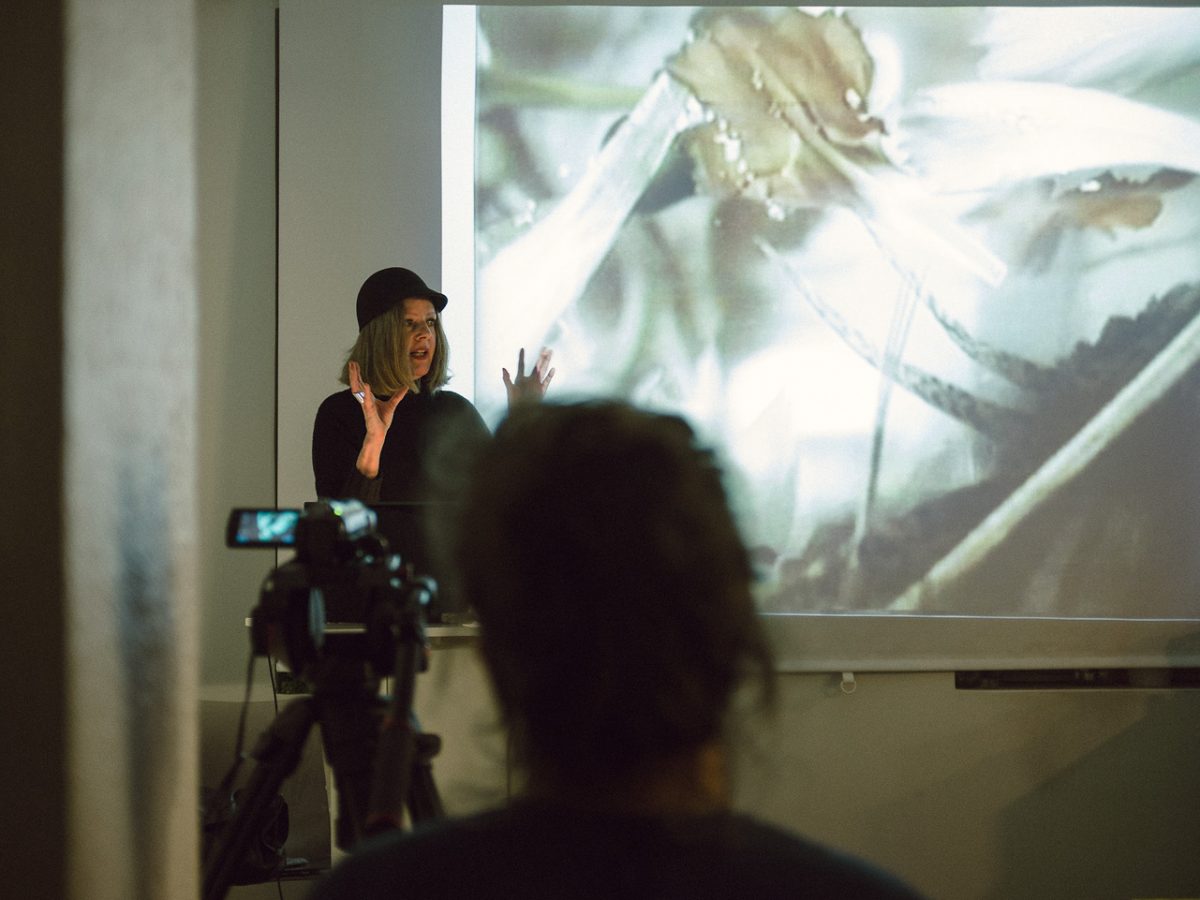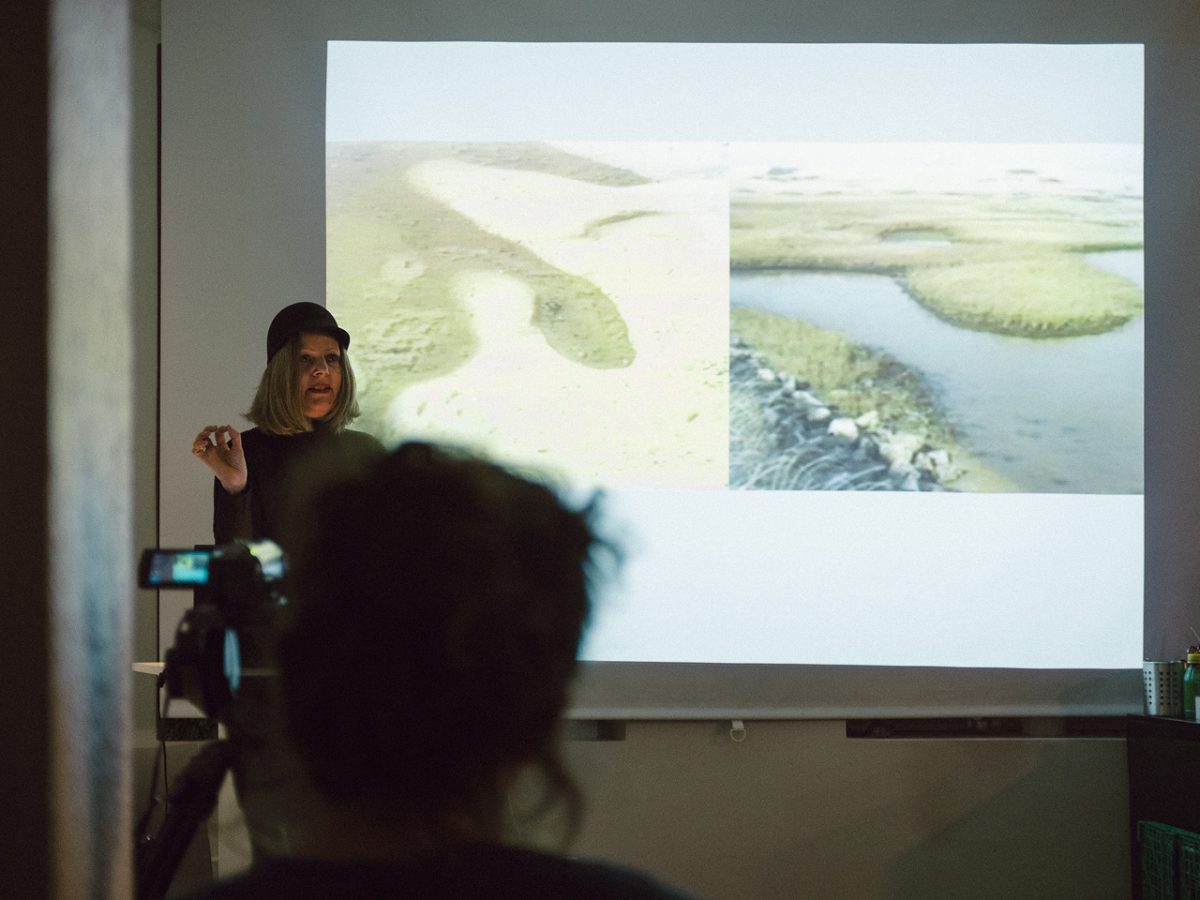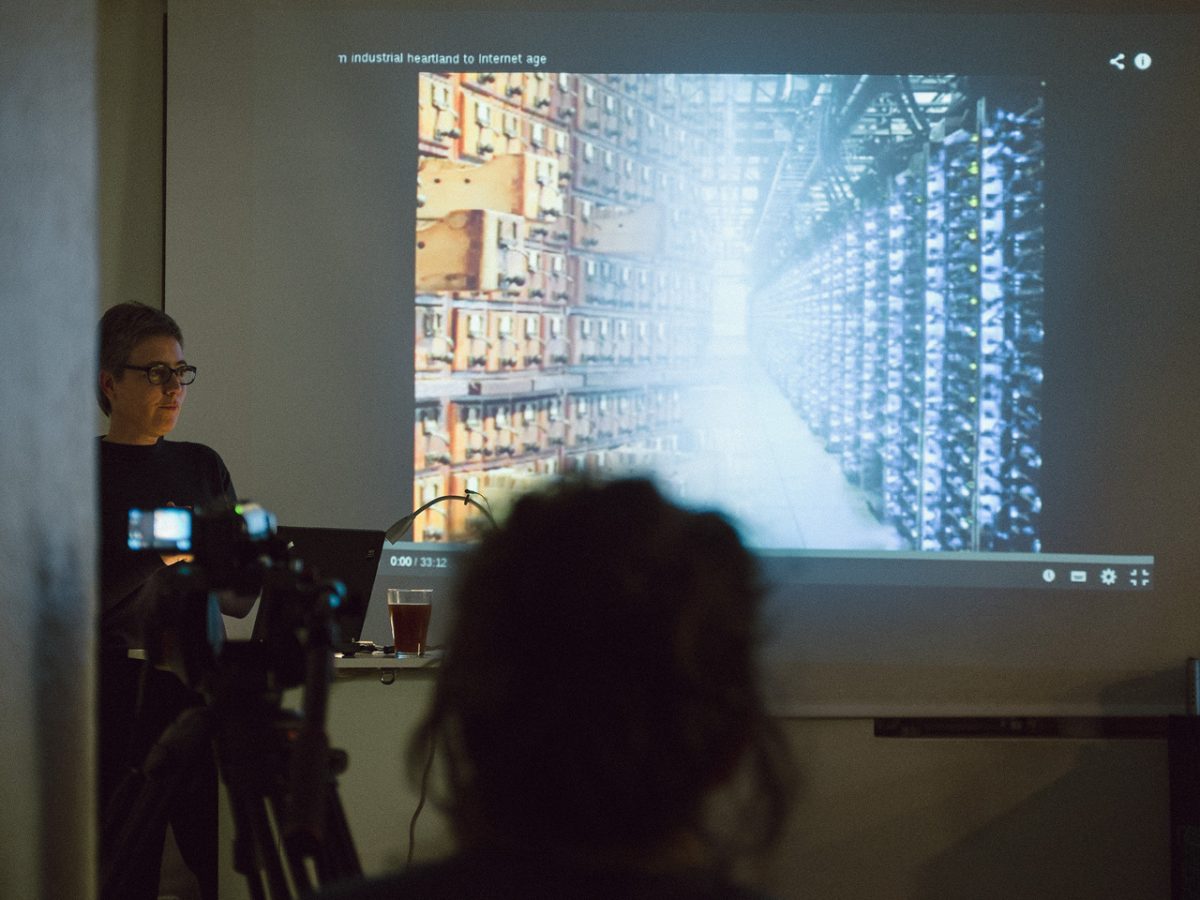The Extensions of Many: Seminars on Media Aesthetics Part 2
Published
The themes range from sonic art and theory of rhythm, through the emergence of narratives about multimedia systems in the amalgam of library science and peace activism, to a relation between early video art and ecological crisis. The speakers include Ina Blom, Florian Cramer, Knut Ove Eliassen, Olga Goriunova, Aud Sissel Hoel, Eleni Ikoniadou, and Femke Snelting. The series is programmed by Dusan Barok, founding editor of Monoskop.org currently based in Bergen, in collaboration with BEK, and held at Hordaland kunstsenter. Events are open to general audience and will take place on March 4, 18, and 25.
The Extensions of Many: Seminars on Media Aesthetics
Media-theoretical discussions on aesthetics in recent years gave way to miscellaneous contributions such as those on post-digital aesthetics (Cramer 2013), post-media (Post-Media Lab 2013), ‘anti-media’ (Cramer 2013), ‘evil media’ (Fuller and Goffey 2012), or ‘no media’ (Dworkin 2013). They share one common denominator: the persisting effort for a new theorisation of media and mediality. The humanities’ modernist understanding of media as a means of artistic expression (painting, sculpture, photography..) got complicated by importing elements from mathematical theory of communication, and particularly the interpretation of information channel as medium. This semantic ambiguity was embraced notably in the 1960s in the circuits of conceptual and computer art and from the 1990s on in the domain of new media art, which, despite the former postmodern turn, implied a new artistic genre in terms of the exploration of and work with the latest technology as its means of expression. New media artists in turn refuted the criticism of their modernist nostalgia claiming that the relevance of their work resides in artistic research of media as contemporary information, communication channels.
The issue of medium-specifity had been raised in aesthetics on several notable occasions: in connection with dismantling Horace’s maxim ‘ut pictura poesis’ (Lessing 1766), arguing for the primacy of material ‘faktura’ over stylistic ‘manera’ in the Russian savant-garde of the 1910s (Markov 1914), or formulating the imperative for the arts to submit to the purity of their respective media (Greenberg 1940). However, the introduction of information theory (Shannon 1948) and the unavoidable inclusion of digital (communication) media in the arts thrown the artistic medium into a paradoxical situation between its agency, on the one hand, as the formal/materiological determinant of a work of art, and on the other, as a sole transmission channel of mimesis.
For this series of three seminars, seven scholars working in Norway and internationally were invited to give 45-60-minute talks, each followed by moderated discussion.
///// PROGRAM /////
Wednesday, 18 March 2015, 18:30, HKS
Ina Blom – Video, Water and Social Ontology
The emergence of analog video, a real-time apparatus whose sophisticated microtemporal operations indicated the existence of memory-frameworks independent of (and largely inaccessible to) human perception, opened the field of art to extensive social inventiveness. This inventiveness involved close interactions between human and non-human time loops, technical as well as biological. In my account of this history, video emerges as an autobiographical “subject” or agent that deploys the contexts, personnel and materials of “art” for an exploration of its own temporalizing capacities and – in extension of this – the very tenets of social memory. This activity can be traced through a number of different phenomena marking early video art; in this context I will focus on the video’s peculiar alliance with water in the context of the ecocrisis of the early 1970s, resulting in new conceptions of nature as well as of social ontology.
Ina Blom is an art historian (professor at the University of Oslo) and art critic, contributing to Artforum, Afterall, Parkett, and Texte zur Kunst. Her latest book is On the Style Site. Art, Sociality and Television Culture (Sternberg Press, 2007, 2009). A new book, The Autobiography of Video. The Life and Times of a Memory Technology, is forthcoming from Sternberg Press in late 2015.
Femke Snelting – The Internet on Paper
In 1934, documentalist Paul Otlet wrote: “Humanity is at a turning point in its history. The mass of available information is formidable. New instruments are necessary for simplifying and condensing it, or the intellect will never know how to overcome the difficulties which overwhelm it, nor realise the progress that it glimpses and to which it aspires.” Otlet considered radio, cinema, micro-fiche, phonograph and television all worthy substitutes for the book as information carrier. He envisaged them interconnected into a ‘radiated library’, an intellectual multi-media machine that would support the publication, consultation and creation of knowledge.
Since 1993, the remains of Otlet’s extensive collection of documents are being cared for by The Mundaneum archive center in Mons. Located in a former mining region in the south of Belgium, Mons is also right next to Google’s largest datacenter in Europe. Due to the recent re-branding of Otlet as ‘founding father of the Internet’, and ‘visionary inventor of Google on paper’, The Mundaneum has called international attention to his oeuvre. The Internet giant thankfully accepted the gift of posthumous roots, and adopted The Mundaneum in return.
‘The Internet on Paper’ traces various narrations of media in and around the work of Paul Otlet. It is a contribution in the context of Mondothèque, a platform for experiments by artists, archivists and activists concerned about the way knowledge is produced and distributed today. http://www.mondotheque.be
Femke Snelting is an artist/designer developing projects at the intersection of design, feminism and Free Software. She is a core member of the Brussels based association for arts and media, Constant, co-initiated the design/research team Open Source Publishing (OSP) and the Libre Graphics Research Unit. With delegates Jara Rocha, Seda Gürses and Miriyam Aouragh she takes part in the Darmstadt Delegation, assigned to explore techno-political and socio-emotional relationships between activist practice and tools.
Photos from the event: Thorir Vidar / http://thorirvidar.com




